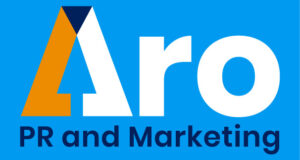In the world of advanced engineering, communication needs to be as precise as it is strategic. Technical webinars have become an essential tool for engineering and scientific companies looking to share knowledge, demonstrate technical leadership, and connect directly with specialised audiences, whether that is customers, distributors, or suppliers.
Webinars offer a platform to dive deep into complex topics and build trust through transparency and expertise. This blog explores why technical webinars are particularly effective for engineering companies, and how to deliver them with clarity, credibility, and measurable impact.
One of the key advantages of technical webinars for engineering companies is their ability to translate complex concepts into accessible insights for targeted audiences. Whether explaining the intricacies of a new product, showcasing performance data, or walking through a troubleshooting process, webinars allow engineers to communicate comprehensively on a specific subject.
They are interactive by nature as attendees can ask questions in real-time, engage in polls, and provide instant feedback. This not only fosters engagement but also allows companies to better understand their audience’s challenges and interests, paving the way for more sales.
To maximize the effectiveness of a technical webinar, preparation and structure are critical. A successful session begins with a clear objective, whether it’s educating users on a new technology, supporting distributor training, or generating qualified leads.
The content should be tailored to the audience’s technical level, avoiding jargon while still delivering depth and detail. Visual aids like diagrams and graphs can greatly enhance understanding, while a well-paced narrative ensures that complex information is delivered in digestible segments. Including real-world application examples further strengthens the message.
Equally important is the choice of presenter. Ideally, the speaker should combine deep technical expertise with communication skills. Engineers, product managers, or technical leads who are closely involved with the subject bring authenticity and authority to the discussion. They are the best people to present.
However, they should also be briefed on presentation techniques to ensure clarity, confidence, and audience engagement. A Q&A session at the end of the webinar not only adds value for attendees but also showcases the company’s openness and responsiveness. And again, the engineers or scientists are best placed to answer these questions.
To ensure lasting impact, follow-up is just as important as the webinar itself. Recording the session and making it available on the website extends its reach far beyond the live audience, allowing those who couldn’t attend to benefit later.
Sharing key takeaways, slides, and related resources via email or through a knowledge hub helps reinforce the message and keeps your company at the top of their minds.
Additionally, cutting clips of the webinar to use for social media is also a great way to repurpose it and continue to generate engagement. Over time, a well-executed webinar strategy can become a powerful asset in your marketing and technical communication toolkit.
Bruno, our Chief Barketing Officer, says, “When it comes to webinars, it’s not just about barking out the facts, it’s about fetching attention and holding it. If you want your technical expertise to resonate with your audience, our team is ready to help you craft webinars that truly leave a mark.”

If you’d like to explore how Aro could help you to increase understanding of your products and services or help develop your communications and messaging, or just to have an informal chat around generating opportunities to grow your business, drop us an email info@aroprandmarketing.co.uk or phone 0117 379 0008.

